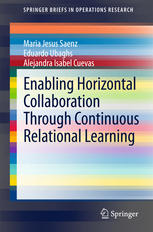

Most ebook files are in PDF format, so you can easily read them using various software such as Foxit Reader or directly on the Google Chrome browser.
Some ebook files are released by publishers in other formats such as .awz, .mobi, .epub, .fb2, etc. You may need to install specific software to read these formats on mobile/PC, such as Calibre.
Please read the tutorial at this link: https://ebookbell.com/faq
We offer FREE conversion to the popular formats you request; however, this may take some time. Therefore, right after payment, please email us, and we will try to provide the service as quickly as possible.
For some exceptional file formats or broken links (if any), please refrain from opening any disputes. Instead, email us first, and we will try to assist within a maximum of 6 hours.
EbookBell Team

0.0
0 reviewsNow that supply chain operations are facing new challenges due to the necessity of reducing costs and CO2 emissions, companies are increasingly leveraging cooperation from companies from other supply chains as a source of competitive advantage. Horizontal Collaboration has been proved an efficient tool for cutting logistic costs up to 49%.
Zaragoza Logistics Center, member of the MIT-Scale Network, is publishing this book with the aim of building upon a framework of inter-organizational learning for horizontal collaboration on logistic operations. The outcome of this study is designed to help understand the relationship dynamics and managerial insights of horizontal collaboration for sustainable and profitable cooperation in freight distribution.
The proposed collaborative practices are based on senior manager experiences from different industries: home appliances, automotive, retail, and food and beverage. Additionally, collaborative evidence from various successful pilot cases relevant to the distribution operations of the four industries are described, in order to illustrate the framework presented. This book fills a gap in the literature market and its insights encourages the readers to reflect on their own operational circumstances and challenges. Additionally, the book can be used as supplementary reading for master degree courses on supply chain collaboration, as well as courses in executive management.